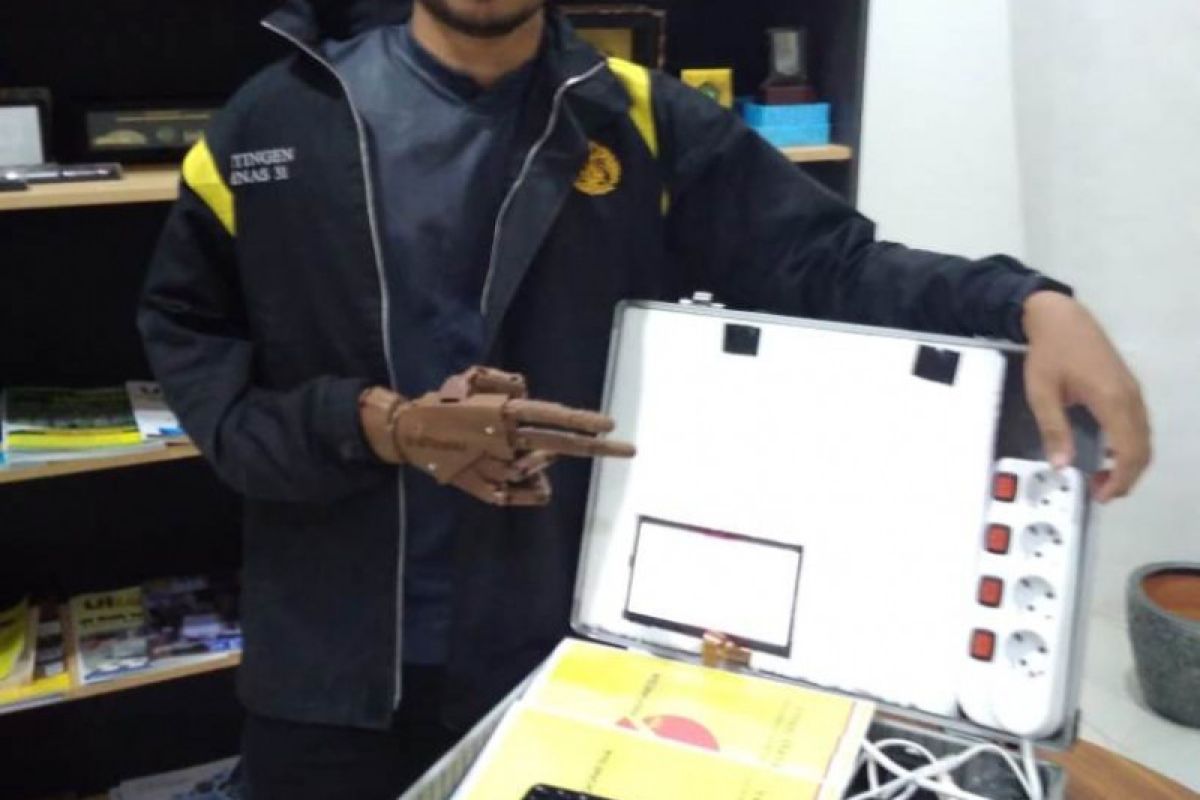Afta B-ionic has advantages such as the price is more affordable, it is easily released and installed, without the need to carry out surgery to implant the sensor into the muscle and can be controlled directly using brain wavesDepok (ANTARA) - Three University of Indonesia (UI) students have created a robotic prosthetic hand that is controlled by brain waves using Electroencephalography (EEG) technology which will initiate commands to move the hands as per the user's wishes. "Afta B-ionic has advantages such as the price is more affordable, it is easily released and installed, without the need to carry out surgery to implant the sensor into the muscle and can be controlled directly using brain waves," said Muhammad Arifin Julian, a UI student who created the fake hands, at the UI campus in Depok, West Java, Friday.
"Using EEG control innovations, we were able to convert brain impulse signals into motion commands, so that prosthetic hands became more functional," Julian explained.
The EEG system can read brain waves because it has been modified with the Internet of Things (IoT) so that users can control other IoT-integrated objects.
Afta B-ionic was created by Muhammad Arifin Julian (UI's Technical Faculty 2016), Aulia Ulfah (UI's Economic and Business Faculty 2016) and Muhammad Yusuf Abdurrahman (UI's Technical Faculty 2016).
Making of this sophisticated fake hand was motivated by the concern of the team of friends with disabilities who often experience limited access while supporting their lives.
Persons with disabilities need a prosthesis which is a tool to support them in their activities, but unfortunately, the prosthesis is still relatively very expensive.
For example, if the hand prosthesis with a functional motion system is currently in the range of Rp500 million, it also includes operating costs of nearly Rp150 million.
Anticipating these problems and looking for a solution, Julian and the team created Afta B-ionic by utilizing EEG technology that is integrated with IoT technology, so that it can optimize tool performance.
At present, a prototype Afta B-ionic has been made and will continue to be refined until it is truly ready for sale. If sold, Afta B-ionic can be in the price range of Rp50 million.
Thanks to its innovation, the three UI students managed to receive several awards, namely 110 Indonesian Innovations in 2018 from BIC (Business and Innovation Center), Most Impactful Innovation 2019 from Obara Award, and Silver Medal at the 2019 International Science and Innovation Fair.
These sophisticated fake hands are expected to answer the needs of persons with disabilities to remain active in order to improve their quality of life.
Translator: Feru Lantara/Eliswan Azly
Editor: Bambang Purwanto
Copyright © ANTARA 2019












